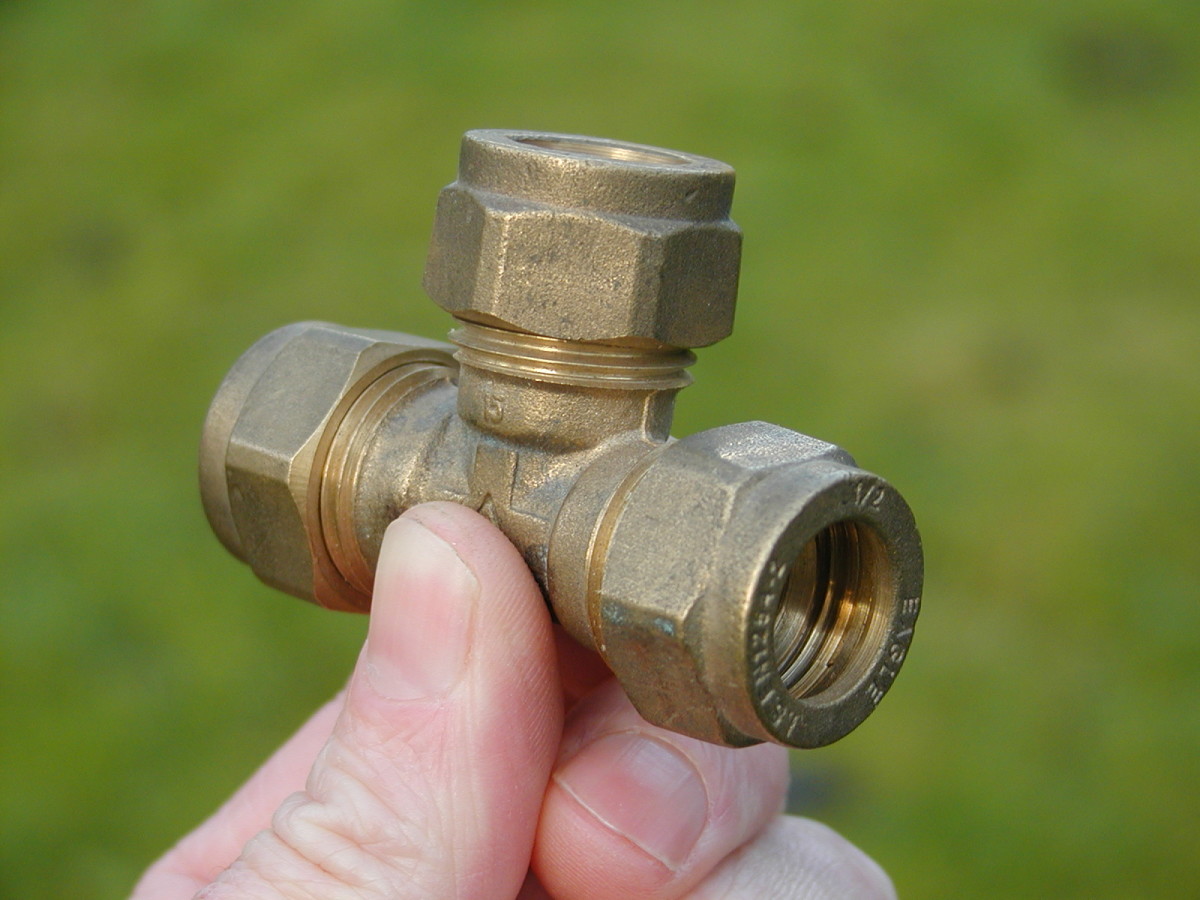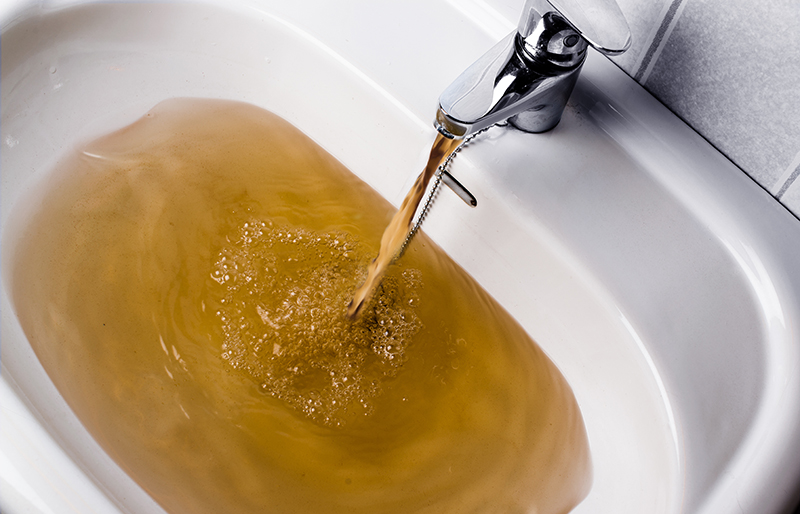Why is My House Making Odd Plumbing Noises?
Why is My House Making Odd Plumbing Noises?
Blog Article
The article in the next paragraphs on the subject of Diagnose Unwanted Plumbing Noises is extremely motivating. Give it a try and draw your own personal conclusions.

To diagnose loud plumbing, it is important to figure out first whether the undesirable sounds take place on the system's inlet side-in other words, when water is transformed on-or on the drain side. Sounds on the inlet side have actually varied causes: extreme water stress, used shutoff and also faucet parts, incorrectly linked pumps or various other devices, incorrectly placed pipe fasteners, as well as plumbing runs having way too many limited bends or various other restrictions. Noises on the drain side typically come from bad place or, similar to some inlet side sound, a format having limited bends.
Hissing
Hissing sound that takes place when a faucet is opened slightly generally signals excessive water pressure. Consult your local water company if you think this issue; it will be able to tell you the water pressure in your area and can install a pressurereducing valve on the incoming water supply pipeline if essential.
Thudding
Thudding sound, usually accompanied by shivering pipelines, when a tap or device shutoff is shut off is a problem called water hammer. The noise as well as vibration are caused by the reverberating wave of stress in the water, which instantly has no area to go. Occasionally opening a valve that discharges water promptly right into an area of piping including a restriction, arm joint, or tee fitting can generate the exact same condition.
Water hammer can generally be treated by setting up installations called air chambers or shock absorbers in the plumbing to which the trouble valves or taps are attached. These gadgets permit the shock wave produced by the halted flow of water to dissipate airborne they consist of, which (unlike water) is compressible.
Older plumbing systems may have brief vertical sections of capped pipeline behind walls on tap runs for the same objective; these can ultimately loaded with water, minimizing or destroying their performance. The remedy is to drain pipes the water supply completely by shutting down the main water valve and also opening all taps. Then open up the primary supply shutoff as well as close the taps one at a time, beginning with the faucet nearest the shutoff and finishing with the one farthest away.
Chattering or Shrieking
Intense chattering or shrieking that happens when a valve or tap is turned on, which usually vanishes when the installation is opened completely, signals loosened or defective inner parts. The option is to replace the valve or tap with a new one.
Pumps and home appliances such as cleaning devices and also dishwashers can transfer electric motor noise to pipes if they are incorrectly attached. Link such things to plumbing with plastic or rubber hoses-never rigid pipe-to isolate them.
Other Inlet Side Noises
Creaking, squealing, scratching, breaking, and touching usually are brought on by the expansion or tightening of pipes, normally copper ones supplying hot water. The noises occur as the pipelines slide against loosened fasteners or strike neighboring home framework. You can typically determine the place of the problem if the pipelines are exposed; simply follow the noise when the pipes are making sounds. Most likely you will certainly discover a loosened pipe wall mount or an area where pipelines lie so near to flooring joists or other mounting pieces that they clatter versus them. Attaching foam pipeline insulation around the pipes at the point of get in touch with must remedy the issue. Be sure straps and also hangers are safe and secure and supply ample support. Where feasible, pipe fasteners need to be attached to large structural aspects such as structure walls rather than to mounting; doing so reduces the transmission of resonances from plumbing to surfaces that can enhance and also transfer them. If connecting bolts to framing is inevitable, cover pipelines with insulation or other durable product where they contact fasteners, as well as sandwich completions of new fasteners in between rubber washing machines when installing them.
Fixing plumbing runs that experience flow-restricting limited or numerous bends is a last option that ought to be taken on just after speaking with a proficient plumbing professional. Sadly, this circumstance is rather usual in older houses that may not have been developed with interior plumbing or that have actually seen numerous remodels, especially by amateurs.
Drainpipe Sound
On the drainpipe side of plumbing, the principal objectives are to remove surfaces that can be struck by falling or rushing water as well as to protect pipelines to consist of inescapable audios.
In brand-new construction, bathtubs, shower stalls, toilets, and wallmounted sinks as well as basins ought to be set on or versus durable underlayments to minimize the transmission of audio via them. Water-saving commodes and also taps are much less loud than standard versions; mount them as opposed to older kinds even if codes in your location still allow making use of older components.
Drains that do not run vertically to the cellar or that branch right into straight pipe runs supported at flooring joists or various other mounting present particularly troublesome sound issues. Such pipes are large sufficient to emit significant vibration; they additionally lug considerable quantities of water, that makes the situation worse. In brand-new building, specify cast-iron dirt pipes (the huge pipes that drain pipes toilets) if you can afford them. Their massiveness consists of much of the sound made by water going through them. Additionally, prevent directing drainpipes in walls shown to rooms as well as spaces where people collect. Wall surfaces consisting of drainpipes must be soundproofed as was explained earlier, making use of dual panels of sound-insulating fiberboard and wallboard. Pipes themselves can be covered with unique fiberglass insulation made for the purpose; such pipelines have an invulnerable vinyl skin (sometimes having lead). Outcomes are not always acceptable.
Pipe Down! What to Do About Noisy Water Pipes
Banging
Does it sound like someone's hitting your pipes with a hammer every time you run water? The issue could be a phenomenon called water hammer, which happens when a water valve closes suddenly. You'll often hear it when your washing machine stops filling, for example. The momentum and pressure from the water flowing toward the valve create the shockwave that causes the banging noise when the valve closes suddenly. It might not seem like a big deal, but water hammer can cause damage to your pipes, including leaks and joint damage.
One way to ease water hammer is by installing water hammer arrestors. Your plumber can install them near major valves to help cushion the shock of the water when it suddenly stops or changes direction. You might also need to reduce the water pressure coming into your home with the pressure-reducing valve.
Gurgling
Gurgling sounds typically come from drainpipes. This sound happens when the water can't drain properly, usually when there's a clog in the water pipes. Drain clogs often happen due to hair, grease, soap scum or objects that fall down the drain. They can happen suddenly or build up slowly over time.
You can sometimes clear a clogged drainpipe with a plunger to help force the clog through the pipe. A plumbing snake or an auger can also help break up tough clogs. A common plumbing myth is that chemical drain cleaners are safe and effective, but they often don't work and contain harsh chemicals that can hurt you and your plumbing. If you can't remove the clog with a plunger or snake, it's best to call a plumber to help.
Rattling
Water travels through your pipes with lots of pressure, so the pipes are bound to move a little. Pipes should be secured well to keep them from moving too much when water runs through them. If they're not properly fastened or the fasteners come loose, you might hear them rattling when you run water.
Resecuring the pipes can cut down on the rattling noise and prevent damage to the joints of the water pipes. However, many pipes run behind walls where you can't easily access them. A plumber can help determine if loose fasteners are the cause of the rattling and resecure them if necessary.
Humming
If your pipes sound like they're humming, it's likely a water pressure issue. When the water pressure is high, it can cause the water pipes to vibrate and create a humming sound. High water pressure is more common if you have a well for your water, but it can happen with municipal water as well. High water pressure can damage your plumbing and cause leaks.
If you have a well, check the pressure to ensure it's below 55 pounds per square inch. A plumber can test the pressure for you and help adjust the issue if you're not sure how to do it yourself. If you're connected to the municipal water source, your home likely has a pressure-reducing valve near where the water enters your home. You can adjust the screw in the valve to decrease the pressure, but be careful not to lower it too much.
Squeaking
Squeaking or squealing is another common sound you'll hear in your water pipes. This often happens if small components within the plumbing, such as washers or aerators, become loose, dirty or damaged. When this is the cause, the squeaking sound is usually confined to a certain fixture or area of plumbing. Replaced or repairing the part should solve the noise.
If you can hear the squealing sound everywhere in your home, it could be an issue with water pressure. Buildup in the pipes narrows the space for the water, which can cause squealing as the water tries to squeeze through the pipes. Wear and tear on the plumbing system can also cause whistling or squeaking. These situations typically require a professional plumber to diagnose and repair.
https://www.homeserve.com/en-us/blog/home-improvement/water-pipes-making-noise/

I discovered that review on Why Do My Pipes Make Noises while doing research the web. Do you know about somebody else who is fascinated by the niche? Be sure share it. Thanks so much for your time invested reading it.
Get Offer Report this page